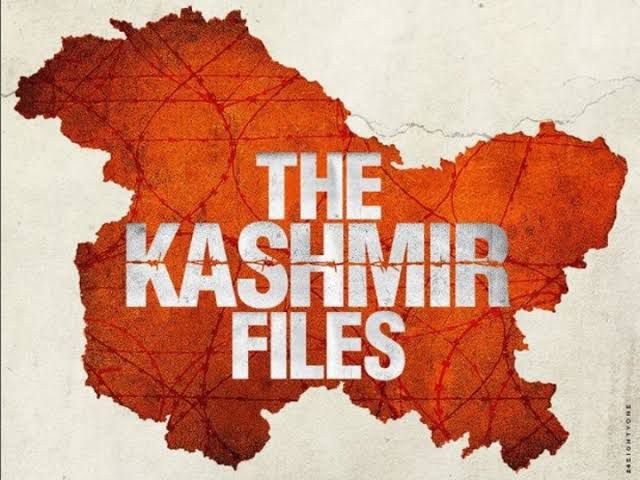‘Poetic lie’ is a literary technique employed by poets and playwrights to fathom truths with the help of exaggeration that strains credulity. The intent is not to replace truth with lies, but to make a deeper impression in the mind. Had they merely stated plain facts without an iota of fiction, readers or the audience might not have been able to get drawn to the story. During such a narration, the audiences have no illusion about the lie, but they suspend their disbelief temporarily. But when half-truths are dished out with the claim that they are the whole truth, things get murky. The intentions of the creators of such literary work or films become suspect. If the raging controversy over the film, The Kashmir Files, is judged from this perspective, the truth and intent of both the filmmaker, Vivek Agnihotri, and politicians lauding and lambasting the film will become clear.
The movie shifts between two timelines, 1990 and 2016 onwards, depicting two versions. One is set in Kashmir’s past when terrorists were operating with full fury and the other in the present in a Delhi college named ANU where “students, intellectuals, professors and media” figure. The main theme is the exodus of Kashmiri Pandits or the minority Hindoo population who were brutally tortured and their women raped by terrorists. Undoubtedly, the film deals with a sad and sordid history of trouble-torn Kashmir. There cannot be any objection to it. But, the problem stems from the fact that it presents a viciously one-sided story in which Hindoos are shown to be the only victims and Moslems are demonised and bracketed with terrorists. The fact is both Hindoos and Moslems were persecuted by the terrorists during that period and it is a gross distortion of truth to claim that the terrorists targeted only Hindoos. Such inhuman perpetrators, it is well known, target civilians equally to get their point across. Their sole purpose is to spread terror for their own gain and that of their masters both within the country and outside handling them.
That the film has a political agenda becomes clear from the way BJP governments both at the Centre and states are patronising it. The Prime Minister himself praised it and several BJP state governments have waived tax on the film. It does not behove constitutionally elected representatives to wax eloquent on a film that overtly communalises a sad chapter of Kashmir’s history. The Bihar government, of which BJP is a constituent, has decided to host a special screening later this week for MLAs and other politicians, just like some other BJP state governments have done.
The truth is the exodus occurred in 1989 and 1990 when VP Singh was the Prime Minister and his government had the support of the BJP. The Governor of J&K was Jagmohan, a known RSS supporter. Hundreds of Moslems, including a university vice chancellor and bureaucrats, were also killed and injured by the terrorists. The film is conveniently silent on these aspects of the gory history.
No wonder the film has kicked up a political storm. CPI(M) leader and former MP from Kashmir MY Tarigami rightly pointed out that along with the Pandits, Moslems and Sikhs also suffered at the hands of the terrorists. He condemned the one-sided projection and demanded an impartial probe into the massacre and the rehabilitation of the Pandits in Kashmir. Former J&K Chief Minister Omar Abdullah echoed him and said an atmosphere should be created for the return of Kashmiri Pandits to the Valley. He also wondered why the film did not show that the BJP was in power supporting VP Singh at the Centre during the time of the exodus. “No single community suffered in isolation,” Abdullah said.
NCP chief Sharad Pawar also joined the chorus of protest against the film and the BJP’s patronage of it. He said the VP Singh-led government was in power in the country then and Mufti Mohammad Sayeed became Union Home Minister (from December 1989 to November 1990) with the help of the BJP.
The timing of the film’s release is significant. The BJP has just won elections to four states, including the crucial UP. This has been possible not only with the promise of development, but through a sustained divisive, communal politics played by the BJP both at the Centre and the states where it runs the government. The process of holding elections in the newly carved out Union Territory of Jammu & Kashmir is on through a controversial delimitation exercise to redraw the constituencies. The BJP is desperate to cash in on its latest electoral success in Kashmir too. The communal passion being stoked by the film will be, it hopes, to its advantage in the forthcoming Gujarat elections also.

